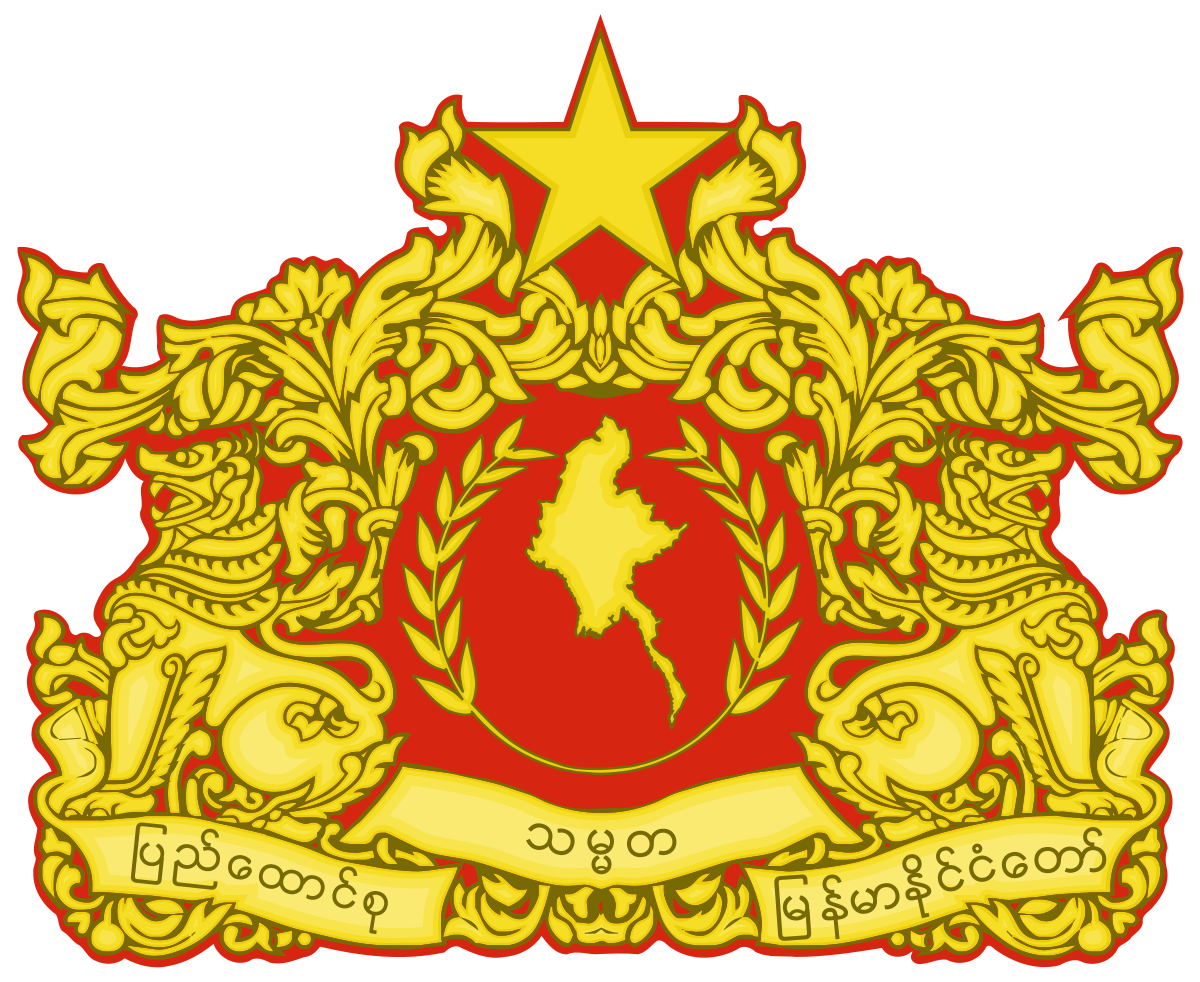Myanmar Permanent Representative to the United Nations delivers rebuttal Statement on briefing by HRC-FFM on Myanmar at the UNSC
An error occurred while processing the template.
The following has evaluated to null or missing:
==> image [in template "20116#20152#47530" at line 28, column 6]
----
Tip: If the failing expression is known to be legally refer to something that's sometimes null or missing, either specify a default value like myOptionalVar!myDefault, or use <#if myOptionalVar??>when-present<#else>when-missing</#if>. (These only cover the last step of the expression; to cover the whole expression, use parenthesis: (myOptionalVar.foo)!myDefault, (myOptionalVar.foo)??
----
----
FTL stack trace ("~" means nesting-related):
- Failed at: #if image.getData()?? && image.getDat... [in template "20116#20152#47530" at line 28, column 1]
----
1<#-- Retrieve the published date meta data field of the web content -->
2<#assign
3 displaydate = .vars['reserved-article-display-date'].data
4 displaydate = displaydate?datetime("EEE, d MMM yyyy HH:mm:ss Z")
5 articleId = .vars['reserved-article-id'].data
6 assetCategoryLocalService = serviceLocator.findService("com.liferay.asset.kernel.service.AssetCategoryLocalService")
7 journalArticleLocalService = serviceLocator.findService("com.liferay.journal.service.JournalArticleLocalService")
8 journalArticle = journalArticleLocalService.getArticle(20143,articleId)
9 resourcePrimKey = journalArticle.getResourcePrimKey()
10 listCategories = assetCategoryLocalService.getCategories("com.liferay.journal.model.JournalArticle",resourcePrimKey)
11 ministry = ""
12/>
13<#list listCategories as category>
14 <#if category.getVocabularyId() == 80291>
15 <#assign ministry = category.getTitle(locale)>
16 <#break>
17 </#if>
18</#list>
19<h2 class="title bigheight">${.vars['reserved-article-title'].data}</h2>
20<br>
21<#assign locationMy = location.getData()>
22<#if locationMy == "">
23 <#assign locationMy = "location">
24</#if>
25<span class="redcolor uppercasetext">${ministry}/ ${locationMy} / ${displaydate?string["MMMM dd, yyyy"]}</span>
26
27<div class="l2news_detail_imgWrapper">
28<#if image.getData()?? && image.getData() != "" && image.getData()?contains("http://www.moi.gov.mm/") >
29 <img class="topmargin20" data-fileentryid="${image.getAttribute("fileEntryId")}" alt="${image.getAttribute("alt")}" src="${"" + image.getData()?replace("http://www.moi.gov.mm/http://www.moi.gov.mm/", "http://www.moi.gov.mm/")?replace("https://www.moi.gov.mm/http://www.moi.gov.mm/", "https://www.moi.gov.mm/")}" />
30<#elseif image.getData()?? && image.getData() != "" >
31 <img class="topmargin20" data-fileentryid="${image.getAttribute("fileEntryId")}" alt="${image.getAttribute("alt")}" src="${image.getData()}" />
32</#if>
33</div>
34 <div class="clearifx"></div><br/><br/>
35 <p>${Content.getData()}</p>
36
37<#-- Check if pdfFileType exists first -->
38<#if pdfFileType?? && pdfFileType.getData()?has_content && pdfFileType.getData() != "[]">
39
40 <#-- Clean and extract actual type -->
41 <#assign rawPdfType = pdfFileType.getData()?trim />
42 <#assign pdfType = rawPdfType?replace('["', '')?replace('"]', '') />
43
44 <#-- External PDF link -->
45 <#if pdfType == "externalUrl" || pdfType == "externalURL">
46 <#if externalURL?? && externalURL.getData()?has_content>
47 <p><a href="${externalURL.getData()?trim}" target="_blank">Download ရယူရန်</a></p>
48 </#if>
49
50 <#-- Uploaded PDF -->
51 <#elseif pdfType == "uploadPDF" || pdfType == "uploadPdf">
52 <#if uploadPDF?? && uploadPDF.getData()?has_content>
53 <#assign jsonFactoryUtil = serviceLocator.findService("com.liferay.portal.kernel.json.JSONFactoryUtil") />
54 <#assign uploadData = uploadPDF.getData()?trim />
55 <#assign uploadedFiles = [] />
56
57 <#-- Case 1: JSON array format -->
58 <#if uploadData?starts_with("[")>
59 <#attempt>
60 <#assign uploadedFiles = jsonFactoryUtil.looseDeserialize(uploadData) />
61 <#recover>
62 <#assign uploadedFiles = [] />
63 </#attempt>
64
65 <#if uploadedFiles?has_content>
66 <#assign file = uploadedFiles[0] />
67 <p><a href="${file.url}" target="_blank">Download ရယူရန်</a></p>
68 </#if>
69
70 <#-- Case 2: Plain URL format -->
71 <#elseif uploadData?starts_with("/") || uploadData?starts_with("http")>
72 <p><a href="${uploadData}" target="_blank">Download ရယူရန်</a></p>
73 </#if>
74 </#if>
75</#if>
76</#if>
77
78
79<script src="https://ajax.googleapis.com/ajax/libs/jquery/2.1.1/jquery.min.js"></script>
80<#if imageslide?has_content>
81 <div class="carosel" id="carosel1">
82 <div class="carosel-inner">
83 <#if imageslide.getSiblings()?size gt 2>
84 <a class="carosel-control carosel-control-left"><i class="fa fa-angle-left"></i></a>
85 </#if>
86 <div>
87 <#if imageslide.getSiblings()?has_content>
88 <#list imageslide.getSiblings() as image>
89 <#if image.getData()?? && image.getData() != "">
90 <img class="carosel-item" src="${image.getData()}" />
91 </#if>
92 </#list>
93 </#if>
94 </div>
95 <#if imageslide.getSiblings()?size gt 2>
96 <a class="carosel-control carosel-control-right"><i class="fa fa-angle-right"></i></a>
97 </#if>
98 </div>
99 </div>
100</#if>
101<script>
102
103$('.carosel-control-right').click(function() {
104 $(this).blur();
105 $(this).parent().find('.carosel-item').first().insertAfter($(this).parent().find('.carosel-item').last());
106});
107$('.carosel-control-left').click(function() {
108 $(this).blur();
109 $(this).parent().find('.carosel-item').last().insertBefore($(this).parent().find('.carosel-item').first());
110});
111</script>
112
113<style>
114.carosel-item {
115 width: 50% !important;
116 height:100% !important;
117}
118
119@media (max-width: 300px) {
120 .carosel-item {
121 width: 100%;
122 }
123
124}
125@media (min-width: 300px) {
126 .carosel-item {
127 width: 50%;
128 }
129}
130@media (min-width: 500px) {
131 .carosel-item {
132 width: 50%;
133 }
134
135}
136@media (min-width: 768px) {
137 .carosel-item {
138 width: 50%;
139 margin-right: 20px !important;
140 }
141}
142@media (max-width: 768px) {
143 .mnp_body .portlet-asset-publisher .asset-full-content .l2news_detail_imgWrapper img{
144 width: 100% !important;
145 max-width :100% !important;
146 }
147}
148.portlet-asset-publisher .asset-full-content img{
149 max-width: 100% !important;
150}
151.mnp_body .portlet-asset-publisher .asset-full-content .l2news_detail_imgWrapper img{
152 width: 60%;
153}
154.carosel {
155 position: relative;
156 text-align: center;
157}
158.carosel-inner {
159 white-space: nowrap;
160 overflow: hidden;
161 font-size: 0;
162}
163.carosel-item {
164 display: inline-block;
165}
166.carosel-inner img{
167 height: 240px;
168}
169.carosel-control {
170 position: absolute;
171 top: 50%;
172 padding: 15px;
173 box-shadow: 0 0 10px 0px rgba(0, 0, 0, 0.5);
174 transform: translateY(-50%);
175 border-radius: 50%;
176 color: rgba(0, 0, 0, 0.5);
177 font-size: 30px;
178 display: inline-block;
179}
180.carosel-control-left {
181 left: 15px;
182}
183.carosel-control-right {
184 right: 15px;
185}
186.carosel-control:active,
187.carosel-control:hover {
188 text-decoration: none;
189 color: rgba(0, 0, 0, 0.8);
190}
191.carosel-inner i{
192 width: 30px;
193 height: 30px;
194 padding: 3px 0px;
195 border-radius: 15px;
196 text-align: center;
197 background: #fff;
198}
199.carosel-control-left{
200 left : -40px;
201}
202.carosel-control-right{
203 right : -40px;
204}
205.mnp_body .fa{
206 font-size : 22px !important;
207 font-weight: bold !important;
208 color: #000000ad;
209}
210#column-3,#column-4,#column-5,#layout-column_column-1,.nav-pills,#form_wrapper,.home-layout-v2 #hometab1,#column-8,#column-7 {
211 display : none !important;
212}
213.mnp_body h2.title{
214 margin: 0 !important;
215}
216.mnp_body p {
217 color: #000000;
218 font-size: 17px !important;
219 line-height: 28px !important;
220}
221.bodypadding p span {
222 font-size: 17px !important;
223 line-height: 28px !important;
224}
225</style>




